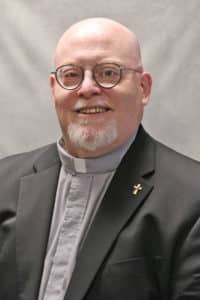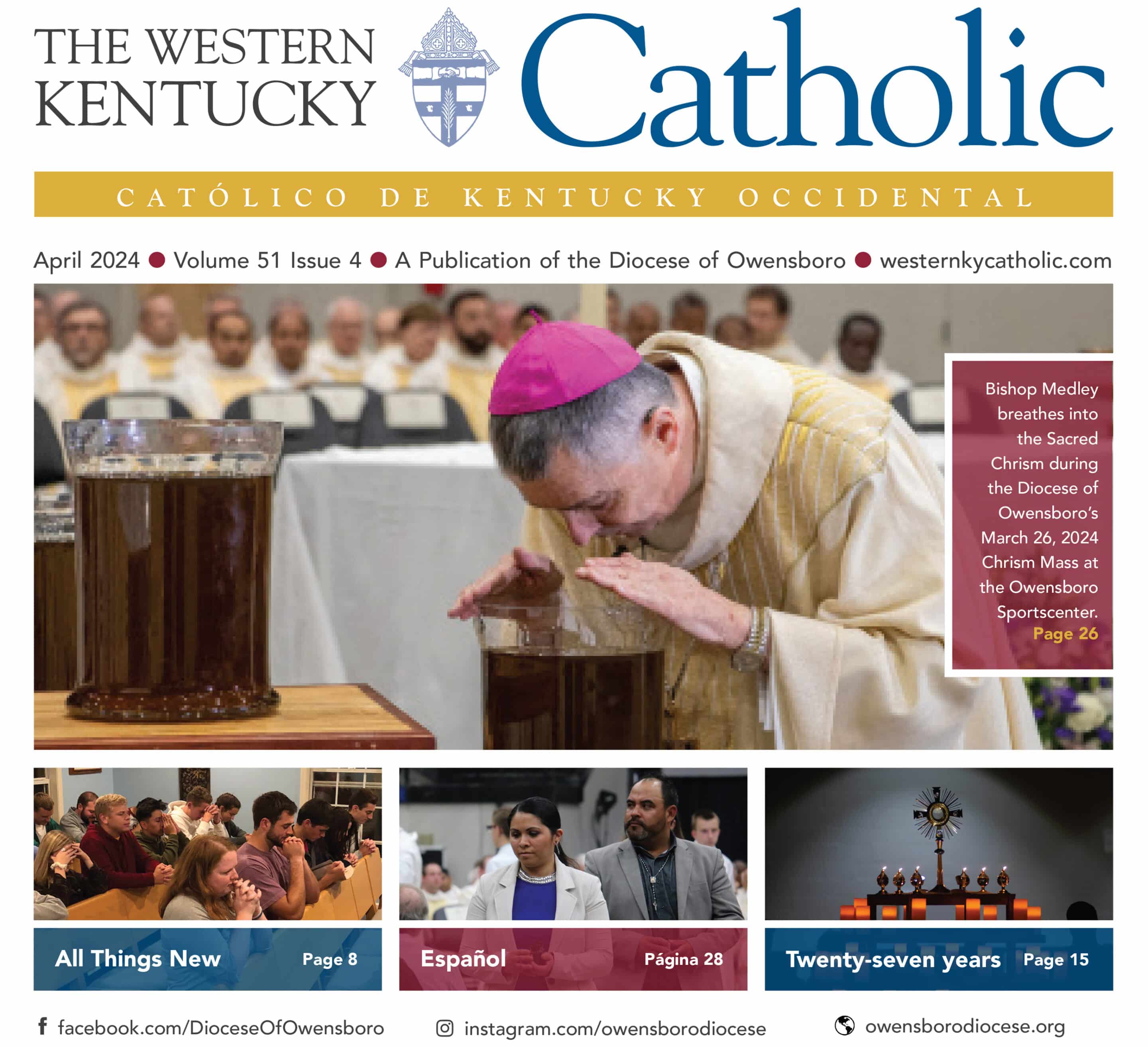Love doesn’t throw stones

Dcn. Jay W. VanHoosier is the director of the Office of Faith Formation for the Diocese of Owensboro. FILE PHOTO
BY DEACON JAY W. VANHOOSIER, OFFICE OF FAITH FORMATION
As we approach another election (I hear a lot of “ughs!” out there), the amount of name-calling, heated (not respectful) debate, and judgmental dispersions are on the rise. This is not new. In fact, over the course of the last 30 years, the level of disrespectful discourse has greatly increased – exponentially so over the last decade.
Why? If most of the citizens of this country are Christians, then what we witness in the public arena is a mystery! It should not be happening. It is apparent that we are awfully quick to judge, aren’t we? But our faith tells us that we should not be doing this – by Jesus himself. Just keep in mind the story from the eighth chapter from the Gospel of John.
A woman caught in adultery by – wait, we are not told who caught the woman, are we? – is brought to Jesus by the elders for judgement. We are told that they were trying to trap Jesus by hoping that he would make some pronouncement that would go against “the law of Moses.” This is obvious without Jesus having to say one word. In reality, the pious elders would have already dispensed their justice and the woman would have already been stoned. But they do not. They are here in this scene – at the Temple, the most holy symbol of the “Law of Moses” – trying to get rid of this man who speaks about love all the time. And that is precisely the point: Jesus did speak about love… all the time.
To the religious leaders of the day, Jesus, in speaking about love in the way that he did, seemed to be rejecting the law of Moses. What they saw when Jesus healed on the Sabbath, ate with Gentiles, spoke to Samaritans, associated with tax-collectors, touched lepers, was a man who seemed to flout the very thing that they felt made them a unique people – the law. The sad thing? If they would have really listened to what Jesus was saying, they would have understood that the very foundation of the law that made them a unique people was… love. The love that God has for all of his creation. That is the meaning of Jesus’ reply to the scholar of the law’s question, “Teacher, which commandment in the law is the greatest?” in Matthew 22:36: “[Jesus] said to him, ‘You shall love the Lord, your God, with all your heart, with all your soul, and with all your mind. This is the greatest and first commandment. The second is like it [just as important]: You shall love your neighbor as yourself. The whole law and the prophets depend on these two commandments’” (emphasis added).
Then what are supposed to do? Ignore the sin? No. That is not what Jesus was trying to say to his contemporaries, nor is what he is trying to say to us today. What he is trying to say, then as now, is that we are to always recognize the sin in ourselves! That is what he was saying in Matthew 7:1-5. Stop judging so you will not be judged. The measure with which you measure will measured out to you. Do not be hypocrites. Splinter in your brother’s eye – wooden beam in yours. Wow.
Keep in mind: Jesus did not ignore the sin in the adulterous woman. Recall his words: “Go, and from now on do not sin any more.” However, the words preceding these are the key to this whole passage: “Woman, where are they? Has no one condemned you?” She replied, “No one, sir.” Then Jesus said, “Neither do I condemn you.” The only person in the history of humanity qualified to throw a stone, did not throw a stone. He showed compassion. He threw love. And that is precisely what we are supposed to do – throw love. Rather than stand in judgment of others, love them. Do not preach at them or berate them for their faults, bring them to God by the way you live your life – a life of loving God and others as yourself. Perhaps St. Teresa of Calcutta said it best: “If you judge people, you have no time to love them.”
Dcn. Jay W. VanHoosier is the Director of Faith Formation for the Diocese of Owensboro. For more information visit owensborodiocese.org/faith-formation, email [email protected] or call (270) 852-8324.
Originally printed in the October 2022 issue of The Western Kentucky Catholic.

